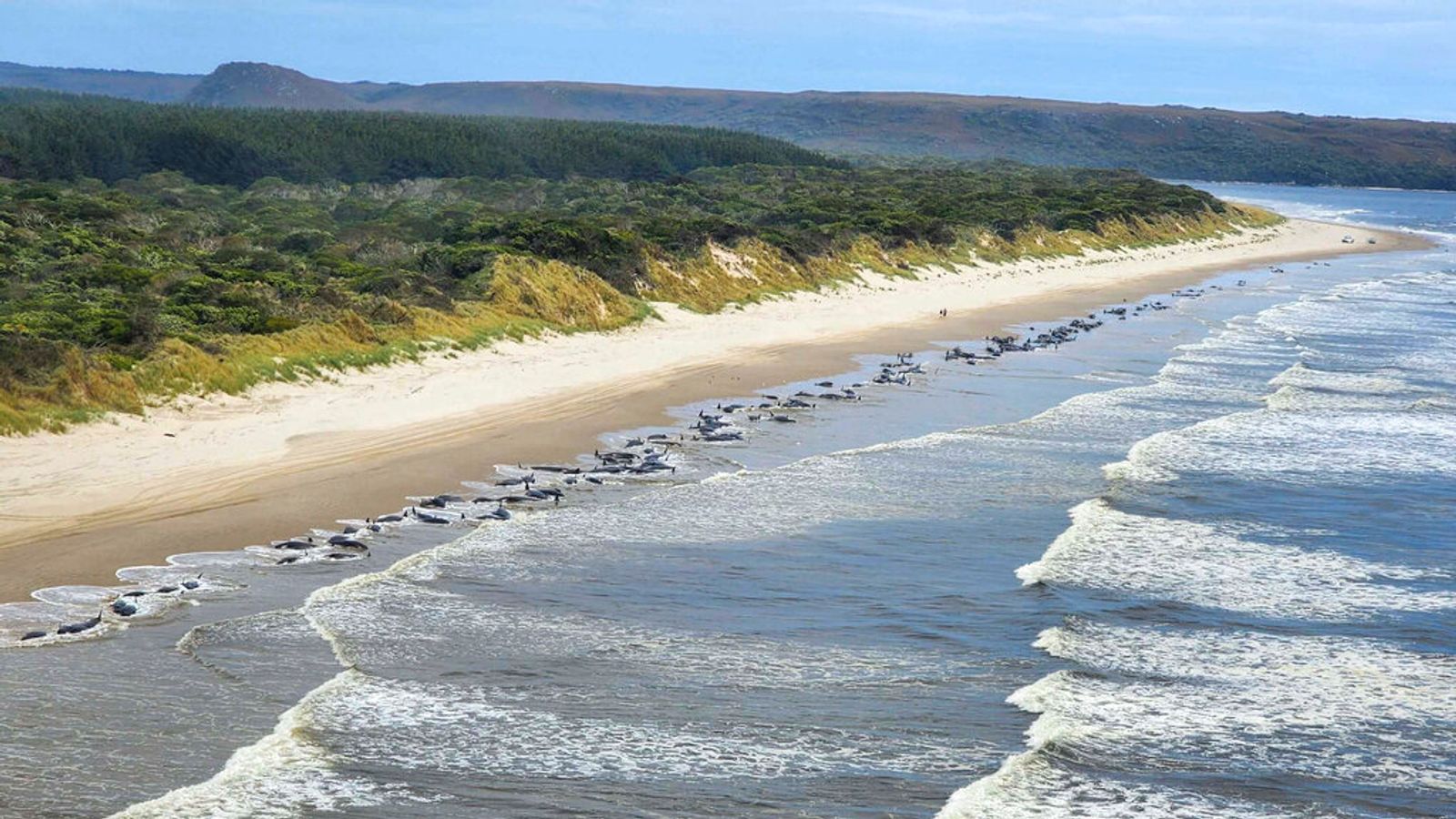More than 200 pilot whales have been washed ashore on Tasmania’s west cost, days after 14 sperm whales were found on another Australian beach.
At least half of the whales at Ocean Beach, which may be exhausted after a long search for food, were thought to still be alive, the Department of Natural Resources and Environment Tasmania said on Wednesday.
Rescuers from the Marine Conservation Program were heading to the area. Beached whales often die from dehydration, collapsing under their own weight or drowning when high tide covers their blowhole.
David Midson, general manager of the West Coast Council, urged people to stay away from the beach.
“Whales are a protected species, even once deceased, and it is an offence to interfere with a carcass,” the environment department said.
On Monday, 14 sperm whales were found washed up on King Island, between Tasmania and the Australian mainland.
Officials have said it is quite common for sperm whales to be seen in Tasmania, but Olaf Meynecke, a marine scientist at Griffith University, said it was unusual for pilot whales to wash ashore.
DNA techniques to piece together what oceans were like before industrial whaling
Seven survivors found after New Zealand Air Force spotted two small missing boats in Pacific Ocean
Revealed: First ever global map of whale migration exposes growing dangers along superhighways
Warmer weather could also be changing the ocean currents and moving the whales’ food, he said.
“They will be going to different areas and searching for different food sources,” Mr Meynecke said.
“When they do this they are not in the best physical condition because they might be starving so this can lead them to take more risks and maybe go closer to shore.”
Two years ago, about 470 long-finned pilot whales were found beached on sandbars off Tasmania’s west coast. It was the biggest mass stranding ever in Australia, and after a rescue effort that lasted a week only 111 could be saved.








